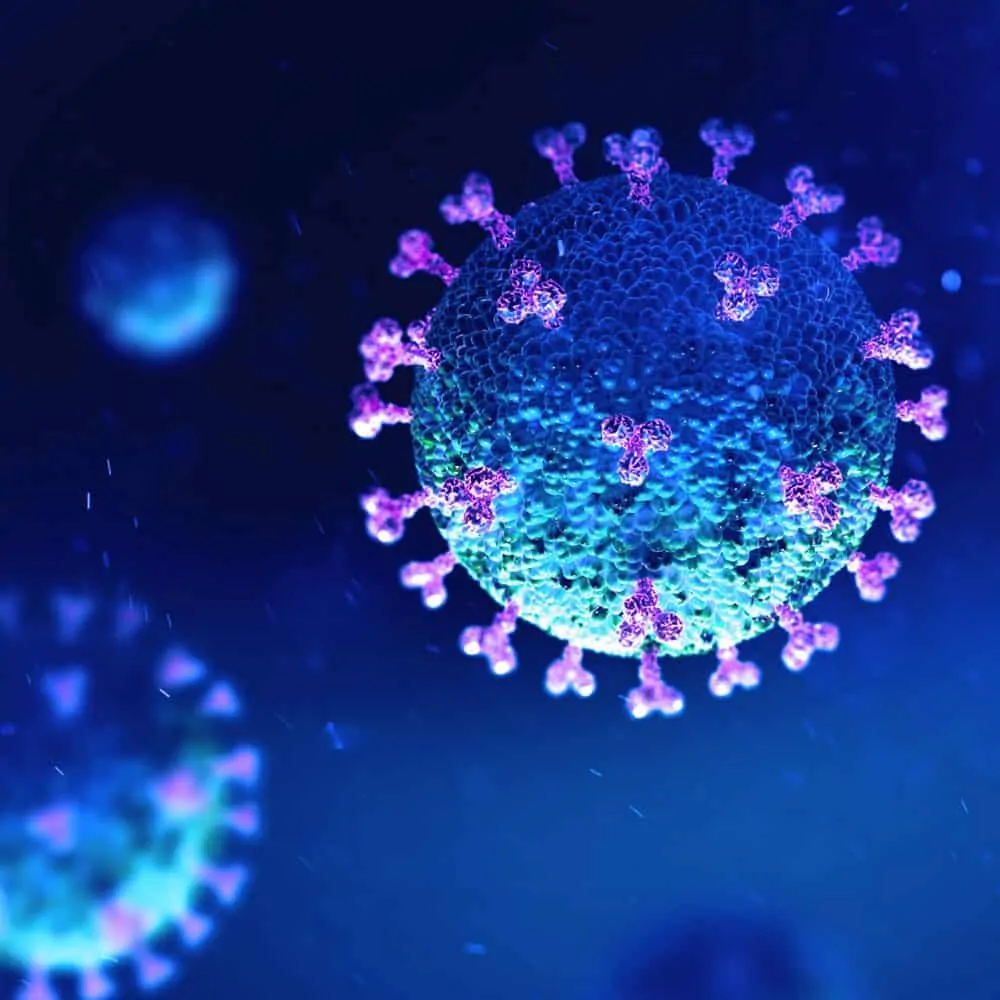If you are a Lyme patient or know someone who has Lyme or another tick-borne illness, you may be wondering what you need to know about COVID-19 in light of Lyme-related health concerns. Below, read a roundup of the latest news on the intersection between the novel coronavirus and Lyme disease.
Lyme can be a risk factor for COVID complications
Lyme and other tick-borne diseases can compromise the immune system, making it harder to fight off illnesses like COVID-19. Additionally, a compromised immune system may make it more likely that a COVID infection will have more severe symptoms and/or require hospitalization.
Patients with untreated, undertreated, and/or chronic Lyme may be at higher risk and should take extra care to follow the latest COVID safety precautions.
COVID-19 pandemic indirectly affecting Lyme diagnoses
A recent study observed the indirect effects of the COVID-19 pandemic on the timely diagnosis of Lyme and other tick-borne diseases.
The study found that certain effects of COVID on healthcare delivery – including increased telehealth appointments, reduced office visits, and in some cases the requirement of negative COVID test results before the performance of other tests, surgeries, and procedures – resulted in a delayed diagnosis of a tick-borne disease in at least three adult patients. One patient whose erythema migrans rash was missed during a telehealth appointment went on to develop severe cardiac Lyme requiring hospitalization.
These results are worrisome considering the risks of a delayed or missed diagnosis of a tick-borne illness. Untreated Lyme can affect the heart, brain, and other body systems, and become a chronic condition.
If you believe you’re at risk for Lyme or are currently being treated for Lyme or another tick-borne illness, it’s important that you keep up with your medical appointments and communicate clearly with your health team.
Symptoms: Is it Lyme or COVID?
We’re currently in the midst of flu season and the COVID pandemic. And while peak tick season is summer, people can get tick-borne diseases any time of year. So if you develop flu-like symptoms, how do you know what you have?
Lyme and COVID are different kinds of diseases
Lyme disease is a bacterial infection that can be treated with antibiotics but for which there is currently no vaccine for humans. COVID-19 is a virus for which a vaccine is finally on the horizon, but there is currently no cure. Additionally, Lyme and other tick-borne diseases spread from ticks to people, not from people to people as does the novel coronavirus.
However, there may be some similarities in symptoms of Lyme, other tick-borne diseases, and COVID-19.
Lyme and COVID can share some symptoms
Symptoms of both Lyme and COVID-19 can vary widely from person to person. However, some symptoms that can show up in both multiple stages of Lyme disease and COVID-19 are:
- Fatigue
- Fever or chills
- Shortness of breath
- Joint and muscle aches
- Sore throat
- Headache
Additionally, since COVID-19 is still such a new illness, people are reporting new and unusual symptoms every day, including skin problems, discoloration, and rashes that may be confused with rashes caused by tick-borne diseases.
ILADS Conference on Lyme and COVID
The International Lyme and Associated Diseases Society (ILADS) recently held a conference on the intersection of the novel coronavirus and Lyme disease. The conference highlighted, among other issues, the “one health” framework, examining how interactions between humans, other species, and the planetary environment contribute to the spread, study, and treatment of infectious diseases like Lyme and COVID-19.
Testing with IGeneX
IGeneX is at the forefront of tick-borne disease testing. In addition to testing for Lyme and other tick-borne illnesses, we also offer COVID-19 testing (both active infection and antibody tests). Learn more today.





